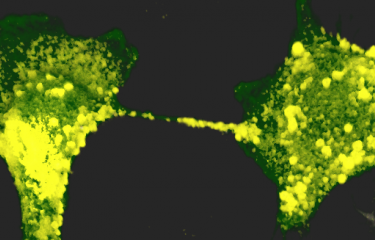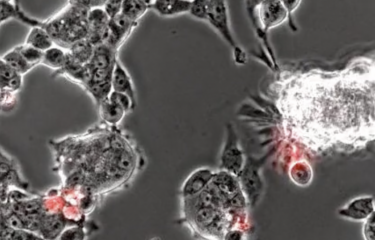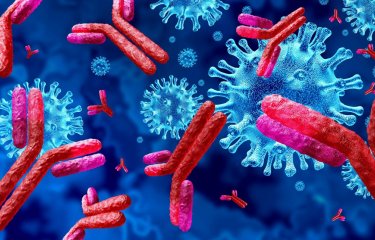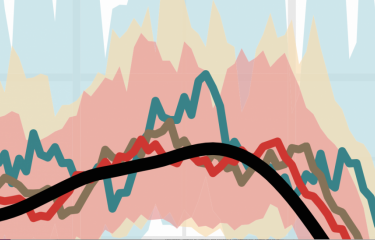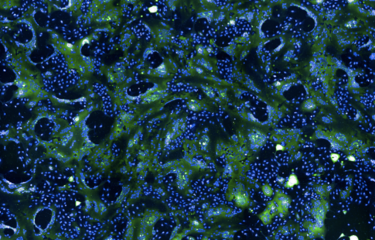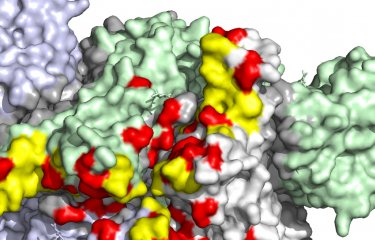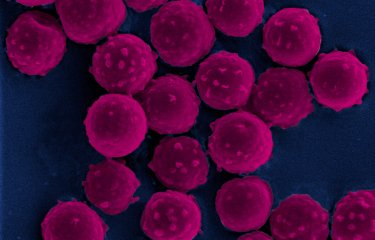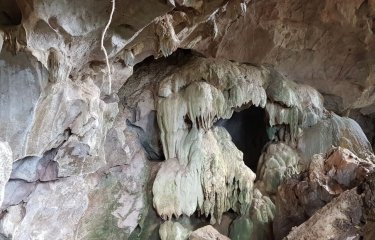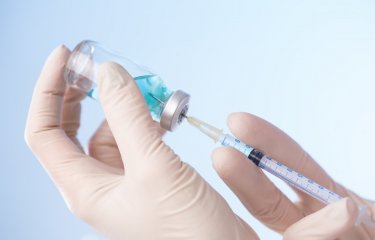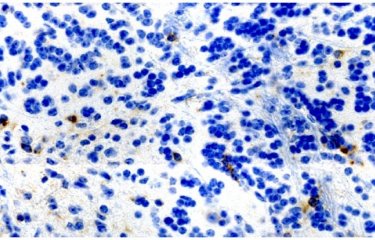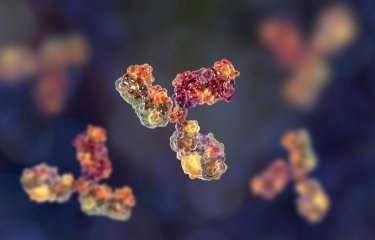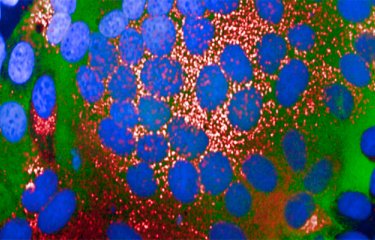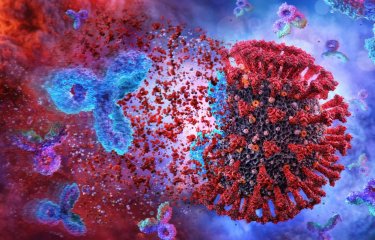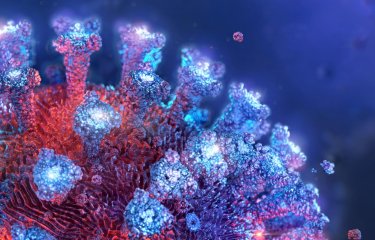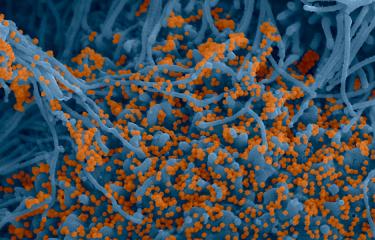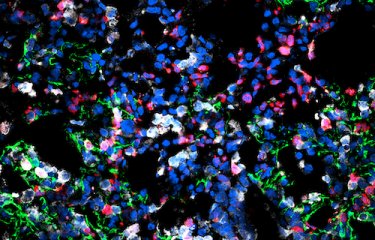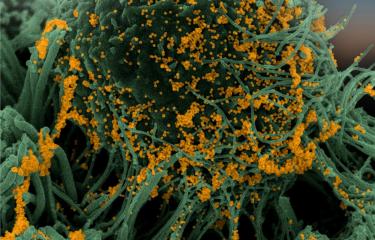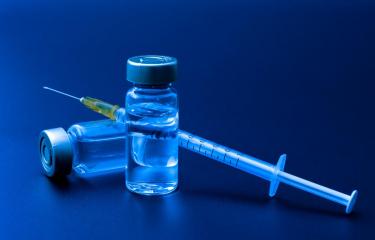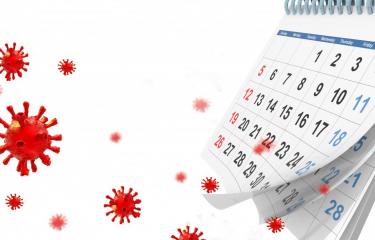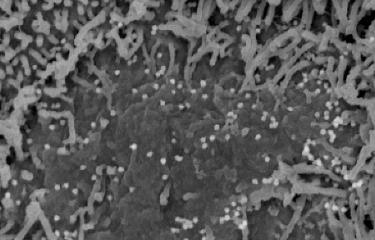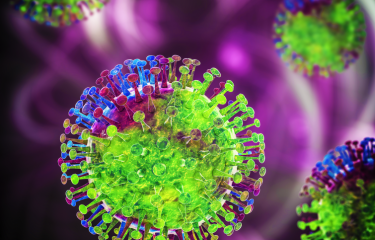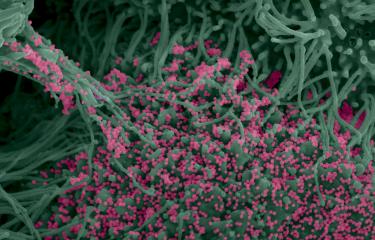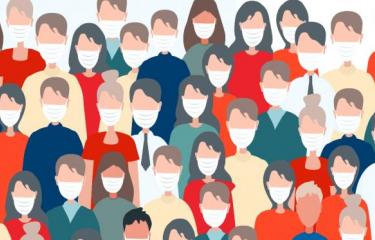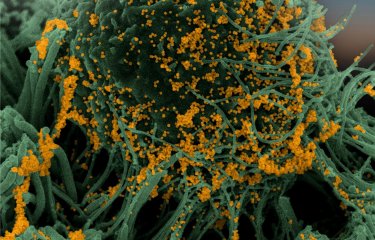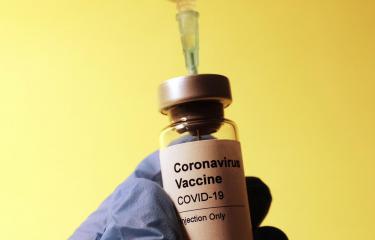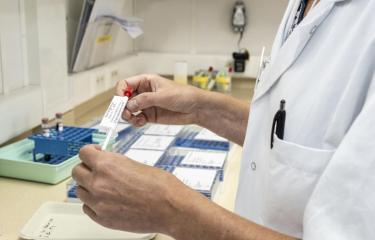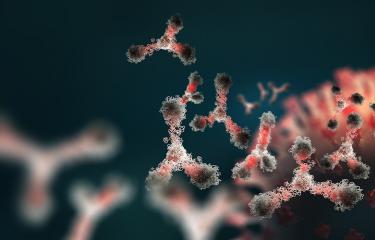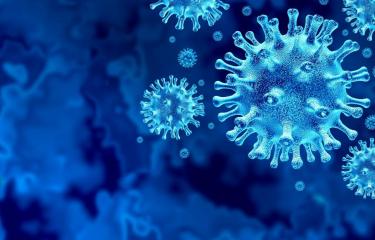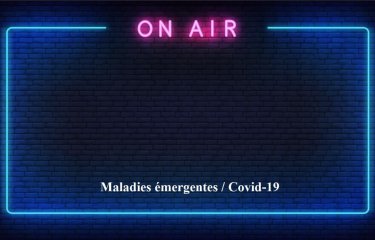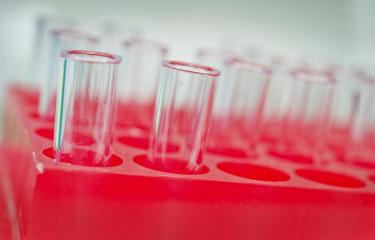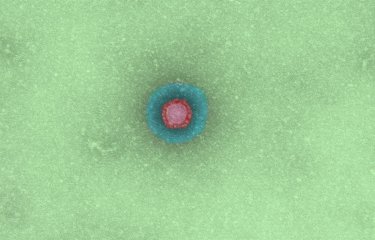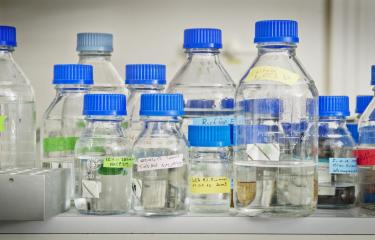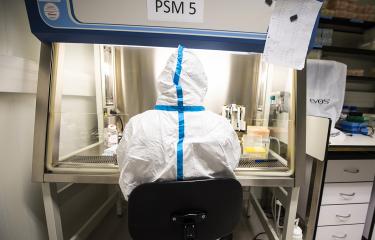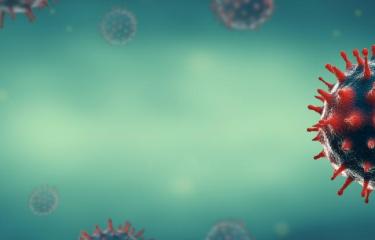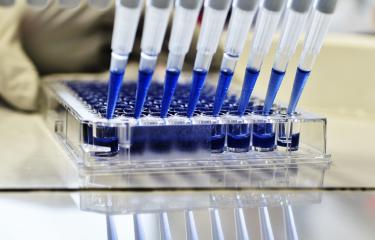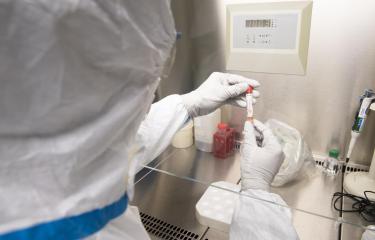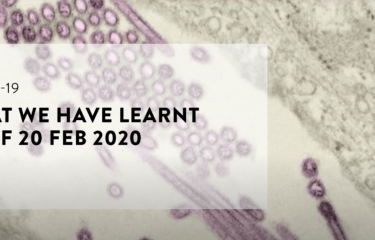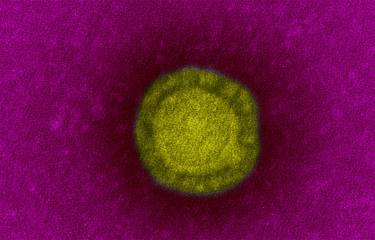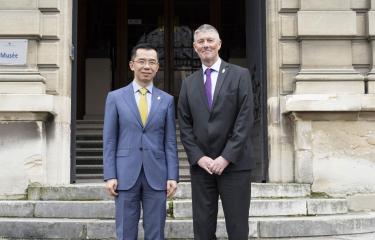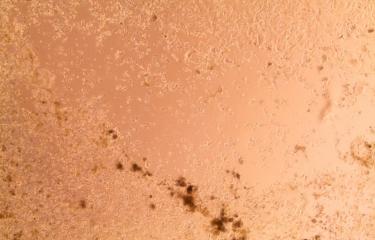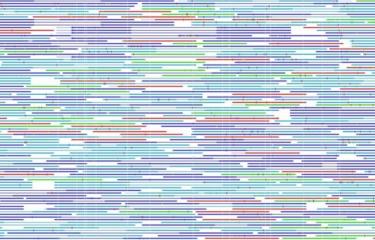More than three years after the start of the COVID-19 epidemic, mathematical modeling is still providing us with valuable insights, as shown in a recent study on household transmission of SARS-CoV-2 by the Hong Kong University School of Public Health and the Institut Pasteur/Université Paris Cité. Scientists believe that there is a subset of individuals with SARS-CoV-2 who are three times more likely to spread the virus to other individuals than the average person.
COVID-19 News
Here are the news, press releases and videos from the Institut Pasteur (Paris), which was mobilized as soon as the first cases were announced, following the declaration of the epidemic by the Chinese authorities. For the record, an epidemic of pneumonia of viral appearance and of unknown etiology emerged in the city of Wuhan (Hubei province, China) in December 2019. On January 9, 2020, the discovery of a new coronavirus (first called 2019-nCoV, then SARS-CoV-2) was officially announced by the Chinese health authorities and the World Health Organization (WHO). This coronavirus is the agent responsible for the new infectious respiratory disease called Covid-19 (CoronaVIrus Disease 2019).
2022.07.21
COVID-19 often leads to neurological symptoms, such as a loss of taste or smell, or cognitive impairments (including memory loss and concentration difficulties), both during the acute phase of the disease and over the long term with "long COVID" syndrome. But the way in which the infection reaches the brain was previously unknown. Scientists from Institut Pasteur and CNRS laboratories have used state-of-the-art electron microscopy approaches to demonstrate that SARS-CoV-2 hijacks nanotubes, tiny bridges that link infected cells with neurons.
2022.07.13
Bats are reservoir species for numerous viruses including coronaviruses. Given that they do not appear to be affected by diseases transmitted by these viruses, there is potential benefit in understanding how their immune system regulates infection. Scientists at the Institut Pasteur and the CNRS studied SARS-CoV-2 replication in bat cells, which involved using real-time imaging techniques for the first time. They demonstrated the existence of species-specific and cell-specific immune responses.
2022.06.15
Although the different SARS-CoV-2 variants currently in circulation are undoubtedly less severe in vaccinated individuals in the general population, immunocompromised people are at greater risk of developing severe forms of COVID-19. Monoclonal antibodies currently offer the best approach, both as a preventive and curative treatment for these patients. Scientists from the Institut Pasteur and Inserm identified two potent neutralizing antibodies from convalescent COVID-19 individuals that proved effective against SARS-CoV-2 variants of concern.
2022.05.03
For the past two years, the COVID-19 pandemic has exerted pressure on the hospital system, with consequences for patients' care pathways. To support hospital planning strategies, it is important to anticipate COVID-19 health care demand and to continue to improve predictive models.
2022.03.29
The SARS-CoV-2 Omicron BA.1 sublineage has been supplanted in many countries by the BA.2 sublineage. Although Omicron is responsible for less severe forms in the general population, immunocompromised people are still at higher risk of developing severe forms of COVID-19. Several monoclonal antibodies are currently available in clinical practice as a preventive treatment for these patients.
2021.12.23
The Omicron variant was detected for the first time in South Africa in November 2021 and has since spread to many countries. It is expected to become the dominant variant within a few weeks or months. Initial epidemiological studies show that the Omicron variant is more transmissible than the currently dominant virus (the Delta variant).
2021.12.10
What if certain fungi exacerbate respiratory distress in individuals with covid-19? The mycovid study published in the lancet respiratory medicine yields its initial results.
2021.12.01
What are the origins of SARS-CoV-2? This is the world’s most pressing scientific puzzle. Its pieces scattered throughout the world are currently being sought out by scientists. Their goal: to track down the culprit for the largest health crisis to hit the globe in the past century. Scientists at the Institut Pasteur in Paris and the Institut Pasteur du Cambodge have identified a coronavirus in bats in Cambodia whose genome is 92.6% related to SARS-CoV-2.
2021.11.18
The team from the Cochin-Pasteur Clinical Investigation Center of Vaccinology at Cochin AP-HP Hospital, Inserm and the University of Paris, coordinated by Prof. Odile Launay, carried out a systematic review of the literature on immunogenicity and efficacy of Covid-19 vaccines in immunocompromised individuals. It concluded that there is a risk of low immunogenicity of Covid-19 vaccines among immunocompromised people, particularly in solid organ transplant recipients and patients with malignant hemopathies.
2021.10.26
The SARS-CoV-2 virus, responsible for the COVID-19 pandemic, primarily targets the respiratory tract, but its ability to infect cells of the nervous system has also been largely reported. Indeed, the expression of the receptor of this virus, the Angiotensin Converting Enzyme 2 (ACE2), by neuronal and glial cells makes the brain susceptible to SARS-CoV-2. Moreover, neurological manifestations are present in the majority of hospitalized COVID-19 patients.
2021.09.27
The clinical manifestations of SARS-CoV-2 infection vary from one individual to the next, and much remains unknown about the mechanisms underpinning this variability. Since the nasal mucosa is one of the first entry points of the virus, scientists from the Institut Pasteur and Inserm, in collaboration with Cochin AP-HP Hospital, analyzed in parallel the immune responses in the nasal mucosa and in the blood of individuals infected by SARS-CoV-2.
2021.10.11
In a new study published in EMBO Journal on October 2, 2021, scientists from the Institut Pasteur, the CNRS, Université de Paris, the Vaccine Research Institute and Sorbonne University examined the fusion mechanisms of different SARS-CoV-2 variants: Alpha (initially identified in the United Kingdom), Beta (initially identified in South Africa) and Delta (initially identified in India).
2021.09.21
The teams from Henri-Mondor AP-HP hospital and Paris-Est Créteil University, Inserm, CNRS, University of Paris, within the Necker-Enfants Malades Institute, and the Institut Pasteur analyzed the capacity of the immune memory generated after mRNA vaccination to recognize and neutralize SARS-CoV-2 variants.
2021.08.26
How can we best organise on-site workplace and school attendance periods and remote work to slow the circulation of Sars-CoV-2? Is it better to separate classes? Bring your whole team in at the same time? Set this up on daily or weekly schedules? The COVID-19 pandemic has forced most countries to impose contact limitations in workplaces, universities and schools.
2021.07.21
COVID-19 is a viral disease with respiratory symptoms that can induce fatal pneumonia. Understanding how SARS-CoV-2 spreads in the respiratory tract can help scientists identify the parameters controlling the severity of infection. Scientists from the Institut Pasteur, the CNRS and Inserm found that SARS-CoV-2 multiplies efficiently in the respiratory tract, and that it primarily targets ciliated cells in the epithelium and destroys their motile cilia.
2021.07.16
Over the past six months, the World Health Organization has categorized four SARS-CoV-2 variants as being "of concern" because they are more transmissible or may escape the immune response. They have been termed the Alpha, Beta, Gamma and Delta variants.
2021.07.12
Since the start of the COVID-19 pandemic, various therapeutic approaches have been explored to tackle the disease. Scientists from the Institut Pasteur have shown that ivermectin, a drug used commercially as an antiparasitic treatment, offers protection from COVID-19 symptoms in an animal model. The scientists observed that taking ivermectin was associated with reduced inflammation in the respiratory tract and an alleviation of the related symptoms. The treatment is also associated with protection against loss of smell.
2021.05.28
The Delta variant was detected for the first time in India in October 2020 and has since spread throughout the world. It is now dominant in many countries and regions (India, the UK, Portugal, Russia, etc.) and is predicted to be the most prevalent variant in Europe within weeks or months. Epidemiological studies have shown that the Delta variant is more transmissible than other variants.
2021.07.01
On April 7, 2021, the European Medical Agency (EMA) concluded that thrombosis in combination with thrombocytopenia has been identified as a likely adverse event following vaccination with the COVID-19 vaccine Vaxzevria. Researchers from the Mathematical Modelling of Infectious Diseases Unit at the Institut Pasteur used a mathematical model to assess its benefits and risks in metropolitan France accounting for the indirect effect of vaccination as well as the availability of alternative vaccines.
2021.06.22
Over the past 16 months and against the backdrop of the COVID-19 health crisis, thousands of drugs have been tested with a view to repurpose them to tackle SARS-CoV-2. Many of these drugs have demonstrated potential antiviral activity (23 compounds including hydroxychloroquine, azithromycin, amiodarone and 4 others tested in clinical trials).
2021.05.27
A study conducted by the University Hospital of Strasbourg (HUS) in collaboration with the Institut Pasteur, published as a preprint on medRxiv, has led to a significant advance in knowledge about COVID-19.
2021.05.28
The Delta variant was detected for the first time in India in October 2020 and has since spread throughout the world. It is now dominant in many countries and regions (India, the UK, Portugal, Russia, etc.) and is predicted to be the most prevalent variant in Europe within weeks or months. Epidemiological studies have shown that the Delta variant is more transmissible than other variants.
2021.05.05
Loss of smell, or anosmia, is one of the earliest and most commonly reported symptoms of COVID-19. But the mechanisms involved had yet to be clarified. Scientists from the Institut Pasteur, the CNRS, Inserm, Université de Paris and the Paris Public Hospital Network (AP-HP) determined the mechanisms involved in the loss of smell in patients infected with SARS-CoV-2 at different stages of the disease. They discovered that SARS-CoV-2 infects sensory neurons and causes persistent epithelial and olfactory nervous system inflammation.
2021.04.21
Drawing on epidemiological field studies and the FrenchCOVID hospital cohort coordinated by Inserm, teams from the Institut Pasteur, the CNRS and the Vaccine Research Institute (VRI, Inserm/University Paris-Est Créteil) studied the antibodies induced in individuals with asymptomatic or symptomatic SARS-CoV-2 infection. The scientists demonstrated that infection induces polyfunctional antibodies. Beyond neutralization, these antibodies can activate NK (natural killer) cells or the complement system, leading to the destruction of infected cells.
2021.03.23
SARS-CoV-2, the virus responsible for COVID-19, is capable of infecting some species, while others are naturally resistant to it. This determines the "host range" of the virus. The SARS-CoV-2 host range includes humans, non-human primates, hamsters, mink and cats. Since the start of the pandemic, mice and rats had proven to be resistant to SARS-CoV-2, because their ACE2 receptor, which allows the virus to enter cells, is very different from the human receptor.
2021.03.26
The B.1.1.7 and B.1.351 variants of SARS-CoV-2 were first detected in the UK and South Africa respectively, and have since spread to many other countries. Scientists from the Institut Pasteur joined forces with Orléans Regional Hospital, Tours University Hospital, Créteil Intercommunal Hospital, Strasbourg University Hospital and Georges Pompidou European Hospital to study the sensitivity of these two variants to neutralizing antibodies present in the serum samples of people who have been vaccinated or previously infected with SARS-CoV-2.
2021.03.09
The ComCor study is conducted by the Institut Pasteur in partnership with the French National Health Insurance Fund (CNAM), Ipsos and Santé publique France.
Intermediate analysis, on March 1, 2021
2021.02.22
The Institut Pasteur is one of the world's leading centers for research on infectious diseases. This area is therefore one of the priority research areas of its 2019-2023 strategic plan. On January 27, 2020, a 'coronavirus task force' was set up to respond to the urgency of this health crisis, by studying the virus and the disease it causes - the task force was created at a time when the 11 million inhabitants of Wuhan (China) are 'locked down' -. Here is a report summarizing the events and reviewing the Institut Pasteur's main action.
2021.02.12
The COVID-19 pandemic has devastated health-care systems, shut down schools and communities, and plunged the world into an economic recession. While 2020 was a challenging year, 2021 looks to be difficult with the emergence of multiple variants of severe acute respiratory syndrome coronavirus 2 (SARS-CoV-2). The race to vaccinate the world will need to respond to the pathogen's constant evolution to evade immunity. What marks the path to the end of this pandemic?
2021.01.25
Since early 2020, the Institut Pasteur has been engaged in research in several of its areas of scientific expertise, including virology, diagnostics, pathophysiology, epidemiology, modeling, therapeutic research and vaccine research. A number of research programs to find a vaccine for SARS-CoV-2, the virus responsible for the COVID-19 epidemic, are under way. In light of the intermediate results of its Phase I clinical trial, the Institut Pasteur is stopping development of one of its vaccine candidates, the vaccine based on the measles vaccine virus.
2020.12.28
Throughout the world, long-term care facilities have been high-risk sites for virus spread since the emergence of the COVID-19 epidemic. In this context, the capacity for timely surveillance and control of case numbers is essential in such facilities. Scientists at the Institut Pasteur have joined forces with the University of Versailles-Saint-Quentin-en-Yvelines, Inserm, and the National Conservatory of Arts and Trades to analyze various methods for surveillance and testing of residents at these facilities.
2020.12.07
The Institut Pasteur International Network, with the support of the International Department of the Institut Pasteur (Paris) and in association with institutional funders, has mobilised to help certain member institutes in Africa and Asia to carry out their public health missions in the context of the management of the COVID-19 pandemic. The objective of this aid was to provide them with financial and logistical support to strengthen their surveillance, diagnosis and response systems in the face of the virus.
2021.03.07
As part of the SEROCoV-HUS study, teams from Strasbourg University Hospital and the Institut Pasteur monitored 308 hospital staff who had previously contracted a mild form of SARS-CoV-2. The scientists demonstrated that neutralizing antibodies could be detected in 84% of them up to 6 months after infection, but that the level fell more quickly in men than in women. These results seem to suggest that immunity lasts longer in women than in men.
2020.11.16
The National Reference Center (CNR) for Respiratory Viruses at the Institut Pasteur specializes in viruses such as influenza and bronchiolitis in infants. As an expert center in France, the CNR is responsible for monitoring cases of respiratory infections and for epidemic surveillance. When a new virus emerges, like the novel coronavirus in China, the CNR's task is to do everything it can to detect the novel pathogen.
2020.11.03
Simply comparing the total number of deaths across countries may provide a misleading representation of the underlying level of transmission of SARS-CoV-2, the virus that causes COVID-19, because of large differences in reported COVID-19 death rates in elderly populations in different countries.
2020.11.04
On November 2, 2020, Senlis Criminal Court convicted the author of a misleading video claiming that the Institut Pasteur invented COVID-19, posted online on March 17, 2020, of public defamation towards the Institut Pasteur. The author's words, which were untrue and unfounded and were based on a misinterpretation of a patent submitted in 2004, led to a wave of strong reactions against the Institut Pasteur. Some members of staff and even some of their families were the victims of hateful messages, phone calls and/or emails, insults and threats.
2020.10.16
Driven by Molecular Insights, Massive Analysis of Medical Records from ~740,000 SARS-CoV-2 Patients Reveal Treatment Regimens for Current, and Potential Future, Viral Pandemics. Published on October 15, 2020, in Science.
2020.10.11
For the 2020 Pasteurdon (the Institut Pasteur’s public fundraising campaign), listen to a podcast in French. Mathieu Vidard, presenter of "La Terre au carré" on France Inter (major French public radio channel and part of Radio France), discusses with two distinguished scientists from the Institut Pasteur: Christophe d’Enfert, scientific director and François-Xavier Weill, who is in charge of a research unit that includes two national reference center. Both explain the Institut Pasteur's role in monitoring the occurrence of epidemics and in health surveillance.
2020.10.07
Institut Pasteur's expertise in infectious diseases has made it one of the major players in research against Covid-19. For the 2020 Pasteurdon (the Institut Pasteur’s public fundraising campaign), a podcast in French has been recorded. Two Pasteurian researchers, Sylvie van der Werf and Arnaud Fontanet, talk about this pandemic and the Institut Pasteur's actions to fight the virus. They also explain how infectious diseases work and the factors behind the emergence of new diseases.
2020.10.12
On Thursday, October 8, 2020, the Institut Pasteur in Paris organized an exceptional digital conference to review 10 months of mobilization against Covid-19, a force still in action for global health. Four experts from the Institut Pasteur were present to talk about the epidemic, tests, treatments, vaccines, scientific modelling, and answer questions from Internet users. This conference is available (in French) on the Youtube channel of the Institut Pasteur.
2020.09.10
Epidemiological theory teaches us that a microbial agent introduced into a population stops circulating when the proportion of the population that is immune to that agent is higher than or equal to 1-1/R0, where R0 is the much-discussed reproduction rate, the number of secondary cases generated by each infected person in a non-immune population in the absence of control measures.
2021.01.19
Scientists from the Institut Pasteur-TheraVectys Joint Laboratory recently published in Cell Host & Microbe1 the results of tests, in two preclinical models, of a COVID-19 vaccine candidate using a lentiviral vector administered by nasal route. Their study demonstrates that the vaccine candidate induces antibody response with strong neutralizing activity against SARS-CoV-2, as well as substantial cell-mediated responses.
2020.10.15
Innate immunity is the fastest-acting component of the immune system, but so far little is known about its role during infection with SARS-CoV-2. A few hours after an infection, the body emits an alarm signal, interferon, enabling cells that have not yet been infected to produce antiviral proteins. This phenomenon occurs well before the production of neutralizing antibodies. Scientists from the Institut Pasteur and the CNRS set out to investigate the consequences of SARS-CoV-2 infection for cell function and the antiviral role of innate immunity.
2020.07.15
Which patients will develop a severe form of Covid-19? This is a key question that needs to be answered to improve the individual management and prognosis of patients. In a study published in Science on July 13, teams from AP-HP, Inserm, Université of Paris, Institut Pasteur and Institut Imagine describe a unique and unexpected immunological phenotype in severe and critical patients, consisting of a severely impaired response of interferon (IFN) type I, associated with a persistent blood viral load and an excessive inflammatory response.
2020.07.06
Every winter, seasonal coronaviruses are responsible for repeated colds and bronchitis from early childhood onwards. The question of whether the four seasonal coronaviruses can confer cross-protective immunity for COVID-19 was recently raised when it was demonstrated that some individuals had antibodies and immunity cells recognizing the SARS-CoV-2 virus before it was in active circulation. The existence of such immunity would have a major impact on our understanding of how the outbreak is likely to develop.
2020.06.23
COVID-19 in primary schools: no significant transmission among children or from students to teachers
In late April 2020, scientists at the Institut Pasteur, with the support of the Hauts-de-France Regional Health Agency and the Amiens Education Authority, carried out an epidemiological survey on 1,340 people linked to primary schools in Crépy-en-Valois, in the Oise department. Thanks to the cooperation of the people of Crépy-en-Valois, the survey, which made use of serological tests developed by the Institut Pasteur, revealed that the proportion of primary school students infected by the novel coronavirus was 8.8%.
2020.01.22
Dans le cadre de sa mission de surveillance des virus respiratoires sur le territoire français, l’Institut Pasteur mobilise ses équipes, notamment via le centre national de référence (CNR) des virus des infections respiratoires. Son rôle est d’identifier et confirmer les suspicions d’infection respiratoires aiguës liées au nouveau coronavirus apparu à Wuhan, en Chine, en décembre 2019, et dont le bilan s’alourdit chaque jour en ce début d’année.
2020.05.29
A study on the effects of hydroxychloroquine n macaques infected with the SARS-CoV-2 virus, used alone or in combination with azithromycin, have been pre-published(1) on Research Square, after their submission to Nature. Scientists from the CEA, Inserm, Institut Pasteur, Université de Paris-Saclay, Université Claude Bernard Lyon 1 and Aix-Marseille Université have been involved in the study, which has been carried out under the aegis of the multidisciplinary consortium, REACTing(2).
2020.03.12
At a time when the Sars-CoV-2 epidemic is continuing to spread, France is mobilizing to accelerate research into the virus and Covid-19 disease through REACTing – a consortium coordinated by Inserm. With the support of the Ministry of Solidarity and Health and the Ministry of Higher Education, Research and Innovation, the Scientific Advisory Board of REACTing has selected 20 scientific initiatives covering diverse fields, from mathematical modelling to disease prevention and treatment.
2020.04.03
On December 31, 2019, the WHO China Country Office was informed of cases of pneumonia of unknown etiology (unknown cause) detected in Wuhan City, Hubei Province of China. It was the official beginning of an epidemic that would rapidly become worldwide. In January, a task force was put in place at the Institut Pasteur and research projects were quickly launched. Here is a look back at three intense months.
2020.03.20
On December 31, 2019, Chinese authorities reported a cluster of pneumonia cases in Wuhan, China, most of which included patients whoreported exposure to a seafood market selling live animals. Emergence of a new pathogenic zoonotic coronavirus (SARS-CoV-2) was suspected. How can we face the challenges with the novel coronavirus SARS-CoV-2 outbreak?
2020.03.19
Consortium to be led by the Institut Pasteur and will include Themis and the University of Pittsburgh.
CEPI to provide initial US$4.9 million for consortium to develop a Covid-19 vaccine candidate based on measles-vector technology.
Partnership becomes eighth Covid-19 vaccine development project that CEPI has signed since Jan 23, 2020
2020.10.22
-ENGLISH VERSION COMING SOON-
Mis à jour le 20 mars 2023.
2020.02.26
During the weekend of February 22-23, 2020, the epidemic situation evolved worldwide with the intensification of outbreaks in South Korea, Japan and Singapore, and the appearance of new outbreaks in Iran and Italy. In these countries, we are witnessing a community transmission with no identified link with cases imported from China. This situation raises many questions. How is the disease diagnosed? What is the period of contagiousness? How long is the incubation? Etc. Here are the answers of the Institut Pasteur.
2020.02.18
On Friday February 14, 2020, Stewart Cole, President of the Institut Pasteur, played host to His Excellency Mr Lu Shaye, Chinese Ambassador to France, who was visiting the Institut Pasteur to show support both personally and on behalf of his country for the Institut Pasteur’s efforts in response to the novel coronavirus outbreak.
2020.01.31
As well as sequencing the whole genome of coronavirus 2019-nCoV, the Institut Pasteur continued to work on the samples taken from the first confirmed cases. The quality of these initial samples enabled rapid cell-culture isolation of the new virus. The Institut Pasteur's scientists now have access to the virus responsible for the infection. The isolation of the virus paves the way for new diagnostic, therapeutic and prophylactic approaches.
2020.01.30
On January 24, 2020, the French Ministry of Health confirmed the first three cases of patients affected by coronavirus, 2019-nCoV. On January 29, 2020, the Institut Pasteur, which is responsible for monitoring respiratory viruses in France, sequenced the whole genome of the coronavirus known as "2019-nCoV", becoming the first institution in Europe to sequence the virus since the start of the outbreak.


